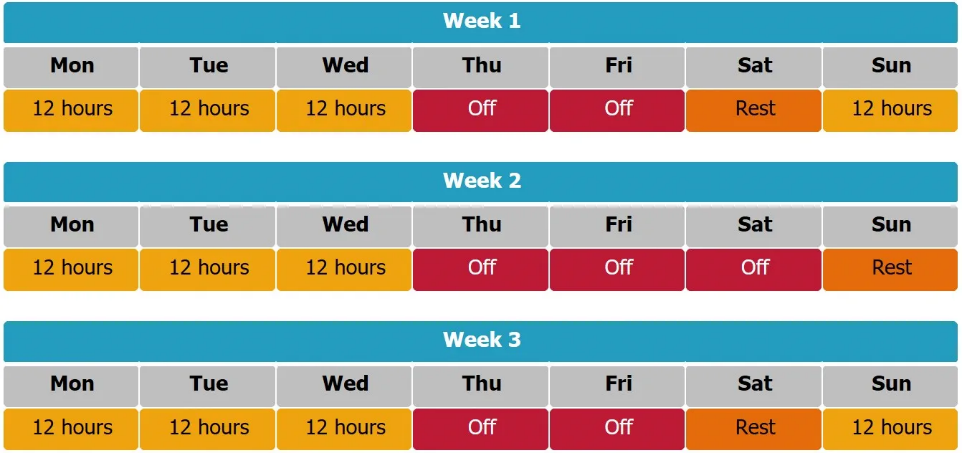
MOM has defined a whole new way of working

The Ministry of Manpower (MOM) defined a compressed work schedule as a condensed version of the standard five-day work week where employees report to work for a reduced number of days with the same total hours.
"In such arrangements, the employee does not need to contemplate reducing his income in exchange for greater flexibility in workdays, since the actual workload and total hours worked in a week do not differ from that of a person on a standard work-week," MOM said in a statement on Friday.
One in 10 establishments in Singapore offered compressed work weeks to their employees in 2020, according to MOM, and if other workplaces want to follow their footsteps, they may head over the Tripartite Alliance for Fair and Progressive Employment Practices' (TAFEP) website.
TAFEP's website explored four different kinds compressed work week for workplaces:




Read more: Will you adopt a four-day work week?
TAFEP, however, warned that a compressed work schedule may not be suitable for organisations with daily deadlines or businesses that always need employees’ presence on-site. It urged employees to check out the following guidelines before implementing a compressed work week:
MOM said that the compressed work week is more suitable for certain working arrangements, and there are other FWAs available for organisations.
"In promoting workplace flexibility, we encourage companies to implement the form of FWAs that best suits their business and employees' needs," MOM said. It added that the government will continue working with tripartite partners and its Work-Life Ambassadors to "promote and support the provision of FWAs."
A study from Milieu Insight previously revealed that 76% of Singaporeans want a four-day work week policy applied for their work, adding that they do not want a cut on their salary should the scheme be implemented in their workplace.
*Photos courtesy of TAFEP’s website